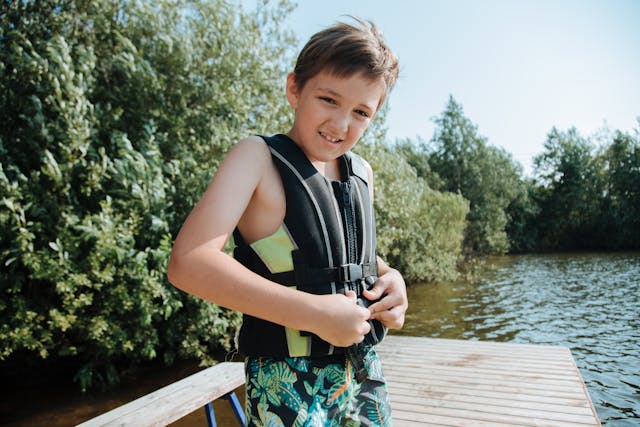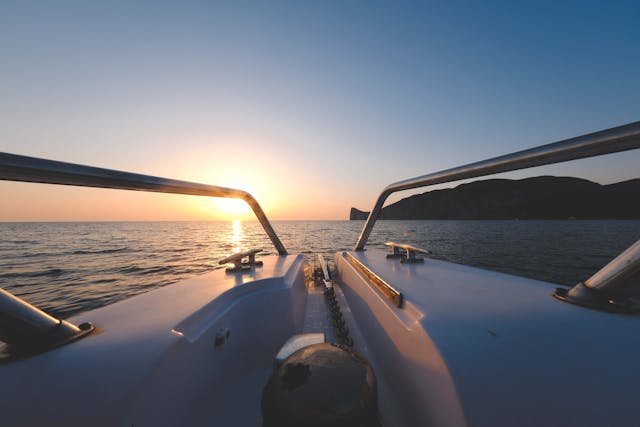Summer in Georgia is the perfect season for boating enthusiasts to explore the state’s rivers, lakes, and coastal areas. Whether you’re cruising on the vast Lake Lanier, meandering down the Chattahoochee River, or enjoying the coastal breezes off Tybee Island, safety should always be your co-captain. As families and friends gear up for sun-filled aquatic adventures, the Savannah personal injury attorneys share important summer boating safety tips tailored for the Peach State’s waters.
Understand Georgia’s Boating Regulations
Before setting sail, familiarize yourself with Georgia’s boating laws.
- Education is Key: Operators born after January 1, 1998, must have completed a boater education course approved by the Georgia Department of Natural Resources.
- License and Registration: Ensure your boat is registered and that you have the necessary documentation on board.

Life Jackets Save Lives
The most critical piece of safety equipment on any vessel is the life jacket.
- Right Fit for All: Every person aboard should have a U.S. Coast Guard-approved life jacket that fits snugly.
- Children’s Safety: In Georgia, all children under 13 years of age are required by law to wear a life jacket at all times on a moving boat.
- Swimming Abilities: Even strong swimmers need life jackets. Accidents can happen to anyone, and a life jacket can make all the difference.
Weather Watch
Georgia’s summer weather can be temperamental, with hot, sunny days suddenly giving way to thunderstorms.
- Check Forecasts: Always review the local weather forecast before departing.
- Watch the Skies: Learn to spot the signs of changing weather and head to shore if conditions deteriorate.
Safe Speeds and Safe Operation
Navigating Georgia’s waters requires attention and a sensible approach to boat handling.
- Manage Your Speed: Always adhere to posted speed limits and wake warnings, especially in crowded areas.
- Avoid Alcohol: Boating under the influence is not only illegal but also a common cause of accidents on the water. Stay sober at the helm.
Boating Gear and Equipment
Your boat should be equipped with a few essentials for dealing with emergencies and staying safe on the water.
- Communication Devices: A marine radio is vital for emergency communication, more reliable than a cell phone when offshore.
- First Aid Kit: Have a fully stocked first aid kit for minor accidents and injuries.
- Anchor: In case of engine failure or storms, an anchor can stabilize your boat.
- Navigation Lights: Ensure they are in working order for visibility during dusk, dawn, or unforeseen dark conditions.

Protect Against the Sun
The Georgian summer sun can be relentless, and protection is crucial.
- Sunscreen: Apply waterproof sunscreen with high SPF every two hours.
- Hydration: Drink plenty of water to prevent dehydration.
Respect Wildlife and the Environment
Georgia’s waterways are home to a diverse range of wildlife. It’s important to:
- Keep a Safe Distance: Avoid disturbing wildlife by keeping a respectful distance.
- Preserve the Ecosystem: Do not litter – keep the waterways clean for everyone to enjoy.
Education and Preparation
A well-prepared boater is a safe boater.
- Know Your Boat: Familiarize yourself with your vessel’s handling, equipment, and safety features before departing.
- Float Plan: Inform someone onshore of your plans – where you’re going and when you intend to return.
- Emergency Drills: Make sure everyone onboard knows what to do in case of emergency, including man-overboard situations.
Boating Etiquette
Being courteous on the water ensures a pleasant experience for all.
- Right of Way: Learn and respect the navigational rules regarding who has the right of way.
- No Wake Zones: Comply with no wake zone rules near marinas, docks, and swim areas.
- Fishing Boats: Give a wide berth to vessels that are fishing.
Anchoring and Docking
Anchoring and docking successfully requires practice and care.
- Learn Proper Techniques: Know how to securely anchor your vessel to prevent drifting, and practice docking in various conditions.
Child Supervision
Constant vigilance is key when children are on board.
- Supervision: An adult should always keep an eye on any child on a boat, even if they are a good swimmer or wearing a life jacket.
Know When to Call for Help
If you find yourself in an emergency situation, don’t hesitate to call for assistance.
- Emergency Procedures: Be ready to use flares, emergency signals, or radio calls if necessary.
In Case of Injury
Despite all precautions, accidents can sometimes happen. If you or a family member is injured:
- Seek Medical Attention: Attend to the injured person and seek professional medical help immediately.
- Document the Incident: Take notes and photos of the situation.
- Legal Consultation: It may be in your best interest to speak with a personal injury lawyer, especially if the injury is due to someone else’s negligence or a mechanical fault with the boat.
A day out boating in Georgia’s beautiful waters is an activity best enjoyed when everyone returns safely. Following these safety tips will help ensure that your summer boating experience is as safe as it is memorable. So cast off with confidence, and make the most of the boating season!


